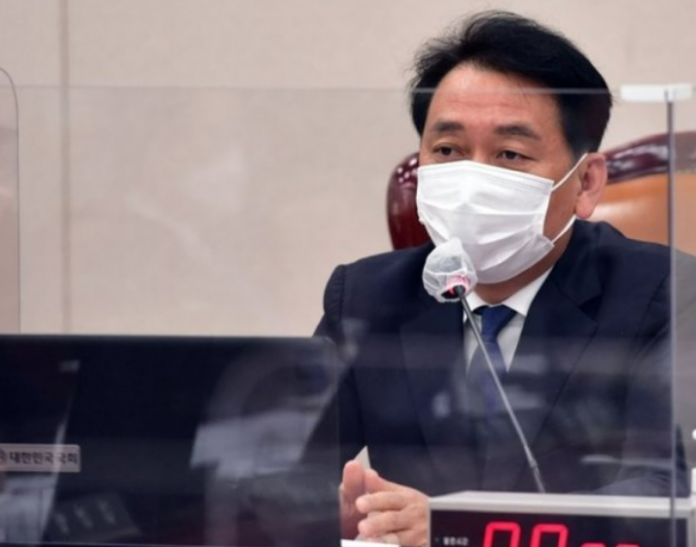
Rep. Lee Kwang-jae of the ruling Democratic Party of Korea said Thursday that he would start accepting cryptocurrency donations sometime in mid-January, for the first time among the nation’s lawmakers, a move to speed up the institutionalization of the virtual currency ecosystem here.
Anyone who wants to sponsor him can transfer cryptocurrency into the electronic wallet of his office. The sponsored digital asset will then be exchanged to the Korean won and deposited into his sponsorship account.
This process allows potential supporters to make donations via their bitcoin, ethereum or other digital currencies directly to his office. Receipts for donations will be issued in the form of non-fungible tokens (NFTs), and sent to each sponsor’s email address. The NFT is a kind of immutable digital asset, often described as a unique digital certificate.
Given the conservative view on cryptocurrencies in the political circle, Korea’s progress in the digital asset industry and related blockchain technology still falls far behind that of other developed countries, such as the United States.
Lee expects that this latest decision will help raise awareness about crypto assets and NFTs.
“I have had a deep sense of regret that the politicians here have had an outdated perception of digital assets at a crucial time when the blockchain technologies used for cryptocurrencies, NFTs and the metaverse, are advancing rapidly day after day,” Lee said. “It is high time that we undertake innovative experiments to enhance our understanding of these future technologies and change perceptions of digital currencies and NFTs.”
But as the introduction of the crypto donation project is the first of its kind here, Lee’s office will only be able to receive up to 10 million won ($8,420) until the system is legally institutionalized. Under the trial program, each sponsor can donate digital assets worth a maximum of 1 million won.
“The political circle should change first to take the lead in the digital transformation. The relevant technologies and industries are developing at an alarming pace, but the policy and laws here have failed to catch up with the paradigm shift.”
The plan is illustrative of the Korean government’s tightening regulatory pressure on the cryptocurrency industry.
In September, dozens of the nation’s crypto exchanges had to shut down their Korean won-based transaction services on their trading platforms, due to the introduction of the Special Financial Information Act here.
Under the regulation, the Financial Services Commission did not grant approval to them, as they had failed to secure real-name bank accounts for users to continue trading cryptocurrencies via the local currency.
Exchanges that sign or renew contracts with commercial banks can be granted licenses to operate the service. Only four of the major exchanges here succeeded in renewing their contracts with affiliated lenders, and the rest have had to suspend their services.
The local cryptocurrency industry is stepping up its criticism on financial watchdogs, claiming that the overly strict set of regulations will continue to prevent Korea from joining the race in this emerging financial area.
Kim Hyoung-joong, a professor in the Graduate School of Cybersecurity at Korea University, who is also serving as the head of the Korean Society of Fintech, said that the regulation mandating the issuance of real-name bank accounts is nothing more than a “malformed regulatory frame.”
“The financial authorities insist that the regulation was adopted at the request of the Financial Action Task Force, but the intergovernmental organization is not even aware of what the rule is,” Kim said in a recent seminar.
Lee Min-hyung(2021.12.31) Korean lawmaker to accept cryptocurrency donations
retrieved from https://m.koreatimes.co.kr/pages/article.asp?newsIdx=321416






